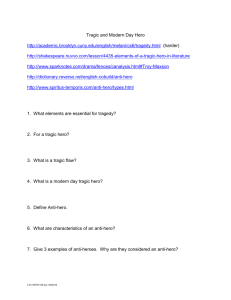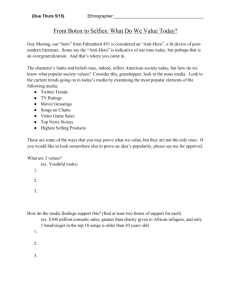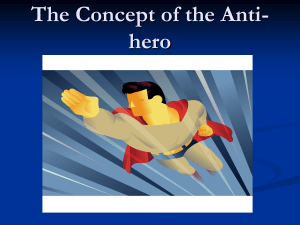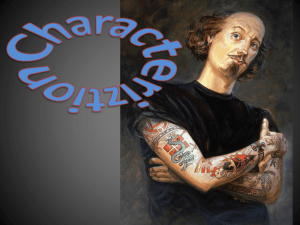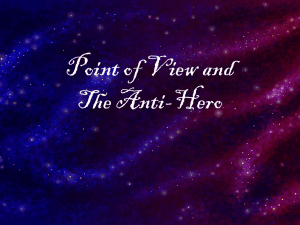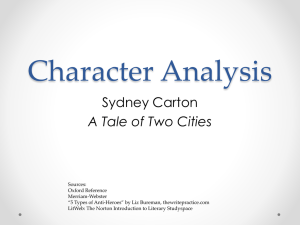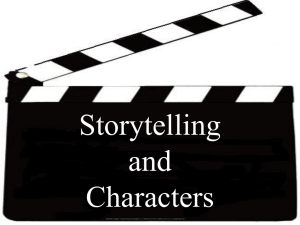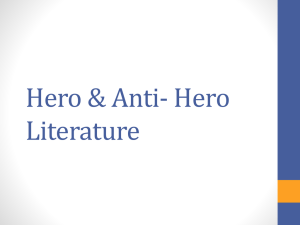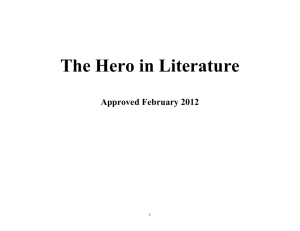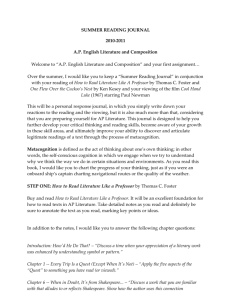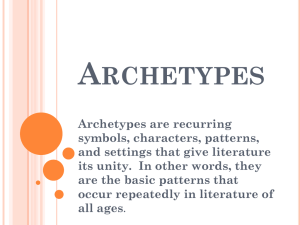Anti Hero Definition - Arrowhead High School
advertisement
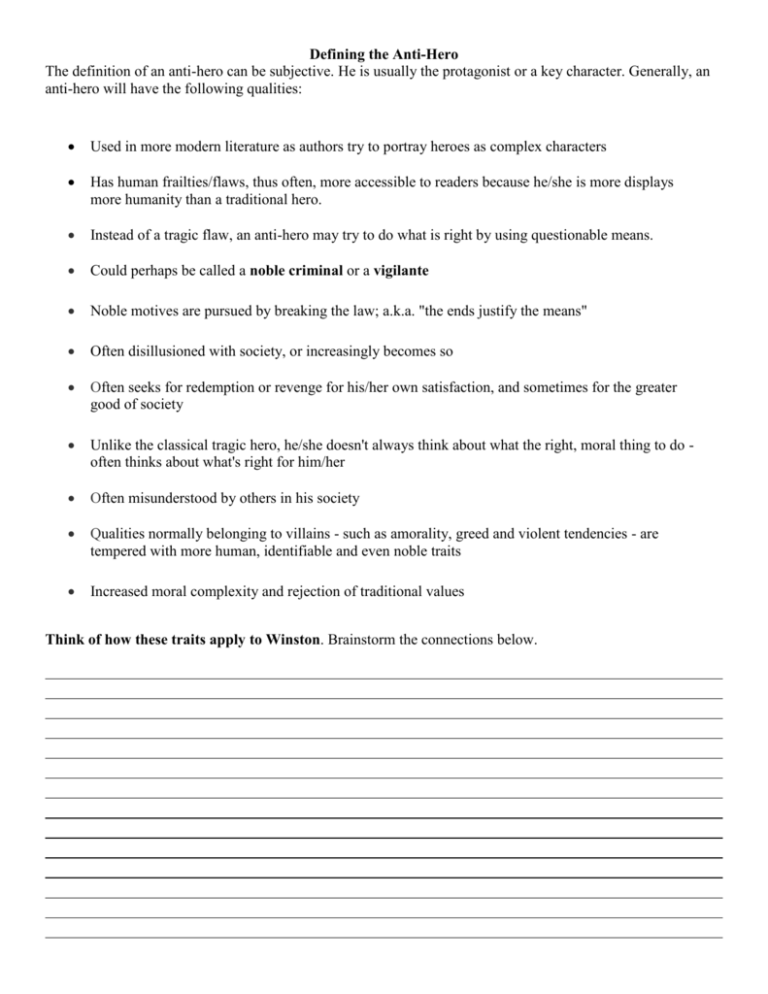
Defining the Anti-Hero The definition of an anti-hero can be subjective. He is usually the protagonist or a key character. Generally, an anti-hero will have the following qualities: Used in more modern literature as authors try to portray heroes as complex characters Has human frailties/flaws, thus often, more accessible to readers because he/she is more displays more humanity than a traditional hero. Instead of a tragic flaw, an anti-hero may try to do what is right by using questionable means. Could perhaps be called a noble criminal or a vigilante Noble motives are pursued by breaking the law; a.k.a. "the ends justify the means" Often disillusioned with society, or increasingly becomes so Often seeks for redemption or revenge for his/her own satisfaction, and sometimes for the greater good of society Unlike the classical tragic hero, he/she doesn't always think about what the right, moral thing to do often thinks about what's right for him/her Often misunderstood by others in his society Qualities normally belonging to villains - such as amorality, greed and violent tendencies - are tempered with more human, identifiable and even noble traits Increased moral complexity and rejection of traditional values Think of how these traits apply to Winston. Brainstorm the connections below. Prompt: An anti-hero is a protagonist who is a non-hero or the antithesis of a traditional hero; a main character in a book who does not have the usual good qualities that are expected in a hero. Anti-heroes can be used to represent many things at the same time such as, social flaws, human frailties and political culture. It has been said that anti-heroes are appealing because their darkness reels us in but we continue to hope for the light. Choose a novel with anti-hero and defend this premise. Directions: 1. Highlight/underline the key words to focus on in each the prompt. 2. Write a thesis statement (including ALL thesis parts: Author, title, key prompt words, theme) 3. Cite 3 SPECIFIC examples/paraphrases/quotes from the novel that would support your thesis statement. (Use your brainstorm from the previous page.)
